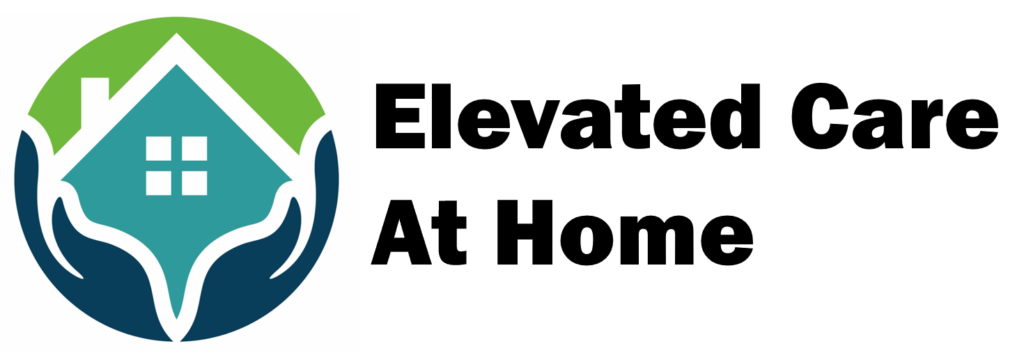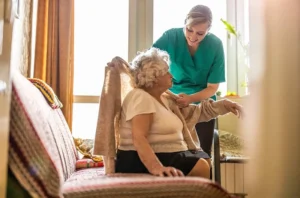As we move into adulthood, the support and care that once came from our parents begins to shift, making it necessary to discuss care options for elderly parents. The once steady hand that guided us through our younger years may now require the same kind of care as we watch them age. For many, the transition can be overwhelming, as the role reversal challenges our understanding of responsibility, love, and care.
As parents grow older, their needs change in ways that can be difficult to navigate, and it’s important for family to think about the possible care options for elderly parents. Often, the questions aren’t just about how to care for them, but when and how to step in. It’s easy to overlook early signs of aging that require intervention, or to hesitate in offering help when they may resist. Understanding when and how to begin offering support is a crucial part of this delicate process.
Identifying the Right Time to Step In for Care Options For Elderly Parents
It can be hard to pinpoint the exact moment when someone needs care options for elderly parents. After all, our parents may not be quick to admit when something is wrong, and they may resist our attempts to take over aspects of their daily lives. However, there are signs that can indicate when it’s time to step in with care options for elderly parents.
Health professionals highlight that a key indicator of when help is necessary relates to what is known as Instrumental Activities of Daily Living (IADLs). These are activities that enable an individual to live independently in the community, such as managing finances, driving, and maintaining a household. When these everyday tasks become increasingly difficult, it may signal that intervention is needed, and care options for elderly parents become necessary to keep them alive and safe.
For example, if your usually meticulous parent begins forgetting appointments or handling money improperly, this could be a sign of cognitive decline. Cognitive decline can be dangerous over time, making care options for elderly parents even more important.
Similarly, if your parent is suddenly skipping meals or appears unkempt, it might indicate a lack of energy, mobility issues, or depression. Social withdrawal is another common sign of trouble, particularly for once-active parents who stop engaging with friends or attending social events.
Medication management is another major concern for aging adults. Failing to take prescribed medications as directed can lead to serious health complications, sometimes even resulting in hospitalizations. If you notice that your parent is consistently forgetting or mismanaging their medications, it may be time to offer more support.
Sometimes the realization comes not through observation, but from a neighbor, friend, or even the parent themselves. Neighbors might notice your parent is having trouble with household chores, or your parent might finally voice concerns about their ability to manage independently. When this happens, it’s important to be ready to respond with care and compassion.
Supporting Independence at Home
If your parent is adamant about staying at home, there are steps you can take to ensure their environment is as safe and accessible as possible. Medication management can be a key starting point. Simple tools like a pill box or medication reminders can help your parent stay on track with their prescriptions. If you are listed as their Medical Durable Power of Attorney, you can also help coordinate refills and monitor their medications through online patient portals.
Ensuring the home is safe is also critical. Removing trip hazards like rugs and clutter, adding grab bars in the bathroom, and improving lighting are small changes that can significantly reduce the risk of falls. An occupational therapist can assess the home and recommend further safety improvements.
For peace of mind, many families opt for a medical alert system, which allows your parent to call for help in case of an emergency. Some systems even include fall detection, providing an added layer of security. While some insurance plans cover the cost of these systems, others may require out-of-pocket expenses.
Stay at home caregiver services are also part of viable care options for elderly parents.
Bringing in Outside Help
Hiring a caregiver for someone who needs extra care at home can be a practical and beneficial option for many families. As loved ones age or face chronic health conditions, it may become increasingly difficult for family members to provide the round-the-clock care that’s needed.
While family members may want to help, balancing caregiving duties with work, personal responsibilities, and maintaining their own health can be overwhelming.
A professional caregiver can step in to provide specialized care, ensuring that your loved one receives the attention they need while also allowing family caregivers to maintain their own well-being. Caregivers can assist with a variety of tasks, including medication management, mobility support, personal hygiene, meal preparation, and light housekeeping. These services can be tailored to fit the specific needs of your loved one, ensuring they get the right level of care.
Additionally, caregivers can provide emotional and social support, which is essential for maintaining mental and emotional well-being. Seniors who are isolated or unable to participate in social activities may experience depression or anxiety, but a caregiver can offer companionship and help keep your loved one engaged in activities they enjoy.
Another practical advantage of hiring a caregiver is the flexibility they offer. Caregivers can work on a schedule that suits your needs, whether it’s for a few hours a day or full-time care. This flexibility makes it easier for families to get help when they need it most, without having to commit to a permanent solution or move their loved one to a facility.
In short, hiring a caregiver can ease the stress on family members, provide essential care for loved ones, and allow seniors to remain in the comfort of their own homes, all while ensuring their safety and well-being.
Elevated Care at Home Answers the Call

At Elevated Care At Home, we provide exceptional care options for elderly parents in the Chicago area, tailored to meet the diverse needs of individuals and families within the comfort and familiarity of their own homes.
Our unwavering commitment is to improve the quality of life while promoting independence, safety, and overall well-being.
We proudly provide care options for elderly parents the Chicago area, including DuPage, Will, Kane, and Cook counties.
At the heart of our mission is our dedicated team of caregivers, who bring extensive experience, compassion, and professionalism to every interaction. Each caregiver is carefully selected and trained to ensure that our clients receive the highest standard of care, marked by dignity, respect, and personalized attention.
Recognizing that each person’s needs and circumstances are unique, we adopt a personalized approach to home care. Through thorough assessments and ongoing communication, we take the time to understand each client’s specific needs and preferences. This enables us to design customized care plans that not only meet immediate needs but also build meaningful relationships based on trust, understanding, and a shared commitment to the well-being of our clients.
At Elevated Care At Home, we believe that home is where comfort and care should meet. Our mission is to ensure that every client feels valued, supported, and empowered in their own home, no matter their challenges.






